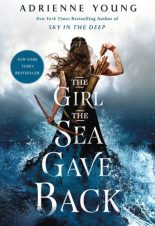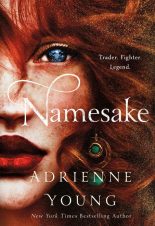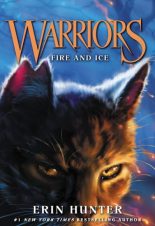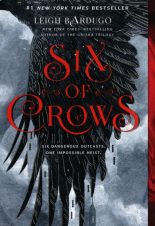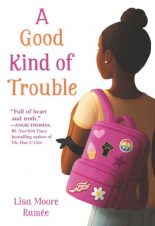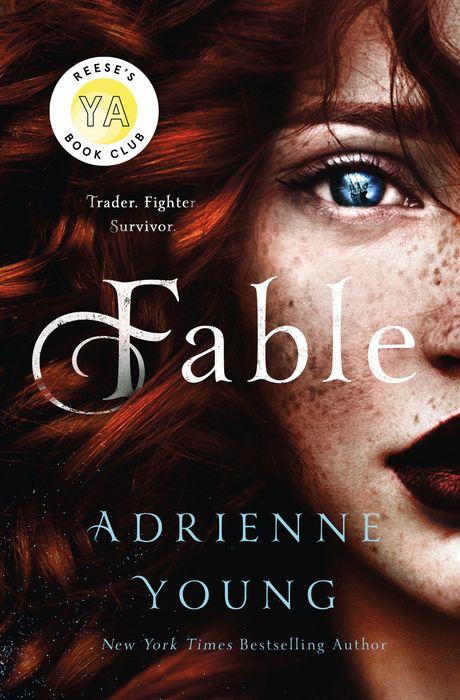
Buy This Book
“That was one of Saint's rules. ‘Nothing is free.’ He wasn't just talking about food or passage or the clothes on your back. He was talking about respect. Safety. Protection. They were things no one owed. And one way or another, you always paid,” Fable. –Fable
Fable #1
by Adrienne Young
AR Test, LGBTQ, Strong Female
12+
Score
5.7
368
Seventeen-year-old Fable only wants one thing: to reunite with her father, Saint. Even though he abandoned her on an island four years ago after her mother’s death, Fable still wants to earn a place among her father’s crew. The first step is to escape from Jeval, the cutthroat island Fable refuses to call her home. She spends her days scavenging for rare minerals and trading with a helmsman named West in exchange for measly amounts of copper. Eventually, Fable has enough copper to escape Jeval on West’s ship, Marigold, and make her way across the sea—The Narrows—to the city of Ceros where her father’s trading empire has flourished. However, aboard the ship, Fable discovers that there’s more to her story and the ship’s crew than what meets the eye.
Fable learns that the Marigold isn’t West’s ship, rather it belongs to her father. While keeping her identify as Saint’s daughter a secret, she also discovers that West and the rest of the crew have secrets of their own. Willa, the crew’s only other female, is West’s sister. Plus, Paj and Austere are running from a dark past. But West is hiding the most: after Fable is scorned by her father once more, Saint reveals that he made an agreement with West to give Fable money and take care of her from afar. Saint claims this is the best thing he could’ve done for Fable because she would learn to survive the harsh world. Fable narrates that Saint “expected me to be grateful for the hell he’d put me through, so he could take credit for who I was. . . I’d crossed the Narrows for a man who’d probably never even loved me. For a dream that would never come true.”
Even after this disappointment, Fable still finds a reason to go on– she does have a family– but it isn’t one made by blood. Fable realizes that the crew of the Marigold are the ones who have protected and nurtured her. She hopes to use the inheritance given to her by her father to buy the Marigold, so West and the crew can be free from Saint, just like her. The book ends on a cliffhanger when Fable is kidnapped, so readers will be reaching for the next book, Namesake: A Novel, to discover if Fable achieves her goal.
Fable as a story is both entertaining and exciting. The reader is thrown directly into a world with new places, names, jobs, and nautical terminology that may take a while to grasp, but contribute to a fast-paced plot that is still understandable and full of unexpected twists. Sometimes, it can be hard to believe that these young kids are able to fend for themselves like experienced adults, but they also live in a world where they had to grow up fast or they wouldn’t get the chance to grow up at all.
The novel is told through Fable’s point of view and emphasizes the idea of “found family,” a group of individuals pulled together by similar circumstances or experiences that come to trust and care for each other like a blood family. This is especially meaningful because of how Fable’s father is against caring for other people and fails to realize that there is strength in having others around you.
While Fable’s life is vastly different than the lives teens lead today, it’s hard not to root for her because of how passionate she is to find her father. When this dream falls short of her expectations, Fable wins our hearts again when she uses this setback as a learning experience; it’s not a father she wants, it’s a family. Fable’s willingness to trust the crew of the Marigold shows that no matter one’s past, love and acceptance are waiting if we open our hearts.
Sexual Content
- Fable describes what happens behind the closed doors of taverns. Fable had “seen enough of my father’s crew disappear into taverns with purses full of coin and leave with empty ones. There were only two things strictly forbidden on a ship because both could get you or your shipmates killed: love and drunkenness. Only on dry land could you find someone to warm your bed or empty a bottle of rye into your belly.”
- The innkeeper thinks that West and Fable are going to have sex. West “dropped three coppers on the counter, and she tucked them into her apron, smiling up at me knowingly. I blushed when I realized what she was thinking. . . The woman winked at me, but West didn’t bother correcting her and I wondered if it was because I wasn’t the first girl he’d brought into the tavern and disappeared up the stairs with.”
- Willa kisses West platonically on the cheek.
- Paj and Auster, two male crew members, are in a relationship. They hold hands occasionally. “Auster wound his pale fingers into Paj’s before he brought his hand to his lips and kissed it.”
- West and Fable kiss underwater while examining a sunken ship. “Before I could even think about what he was doing, his lips touched mine. . . I kissed him again, hooking my fingers into his belt and trying to pull him closer. . . I had wanted to touch West a thousand times.”
- West and Fable have a long, intimate moment which implies that they have sex. Fable narrates, “I lifted onto my toes, pressing my mouth to his. . . His hand found my hips, and he walked me back until my legs hit the side of the bed. I opened his jacket and pushed it from his shoulders before he laid me down beneath him. His weight pressed down on top of me and I arched my back as his hands caught my legs and pulled them up around him. . . My head tipped back, and I pulled him closer so I could feel him against me. He groaned, his mouth pressed to my ear and I tugged at the length of my shirt until I was pulling it over my head. He sat up, his eyes running over every inch of me. . .”
Violence
- Fable’s life on Jeval has been cutthroat. She’s had to hurt other people or been hurt by them. She says, “It had been four years since the day I was dumped on the blazing hot beach and left to fend for myself. Forced to scrape hulls in exchange for rotten fish when I was starving, and beaten for diving in another dredger’s claimed territory again and again.”
- Fable often references a scar on her arm, which was given to her by her father. “He carved into my arm with the tip of his whalebone knife.” She also says, “I had watched in horror as he dragged the tip of his knife through my flesh without so much as a twitch of his hand.” Eventually, she describes the whole scene. “I didn’t know what he was going to do until the tip of the knife had already drawn blood. . . I buried my face into my knees and tried not to scream as he cut into me.”
- Koy, a sailor who takes Fable out on his boat, attacks her for money. Fable had been diving. “Just as I reached the surface, something caught hold of my arm. . . Koy’s face was looking up at me, his hands clamped tightly around my wrist. I kicked, catching him in the shoulder with the heel of my foot and his fingers slipped from me. I swam as fast as I could toward the light, feeling the darkness creeping over my mind, and when I finally broke through to the air, I choked, my lungs twisting violently in my chest. . . Koy came up in the next breath, launching in my direction. I tried to swim from his reach, but he took hold of my hair and wrenched me back to him. . .I twisted, rearing my elbow back with a snap, and it caught him in the face. . . By the time I reached the [boat’s] hull, he had ahold of my foot. . . I slipped, hitting the side [of the boat] with my face so hard that the light exploded in my head. I found the edge with my fingers again before I pulled myself back up and reached inside, my hand frantically looking for the scull. When I had it, I threw my arm back, hitting Koy in the head with the flat end. He stilled suddenly, falling back into the water. . . Koy’s eyes rolled back into his head as he sank, a stream of red inklike blood spilling from his forehead.”
- Fable pulls Koy back into the boat. “I stood over Koy, my hands shaking. He was still losing a steady stream of blood, and I hoped he wasn’t breathing. I hoped he was dead. . . I kicked him hard, screaming, before I fell back onto the deck beside him, trying to catch my breath.”
- Koy says to Fable, “If I ever see your face on this island again, I’ll tie you to the east reef! I’ll watch the flesh rot from your bones!”
- Willa, the only girl on board the Marigold besides Fable, has a burn on her face. Fable says, “I’d seen wounds like that before—a long knife held over a fire until the blade glowed and pressed to someone’s face to teach a lesson.”
- In the past, Willa was hurt by a man named Crane. The crew find Crane, seal him in a crate, and toss him overboard. “The man screamed once more as he was raised up and over the side of the ship. At the same moment, every finger slipped from the crate and they let it go. . .” This makes Fable remember the punishments on her father’s ship. “Once, I’d crept onto the deck in the dead of night and saw him cut the hand off a thief with the same knife he used to cut his meat at supper. . . I’d forgotten what the sound of a grown man screaming sounded like.”
- Fable gets jumped in an alley. A man “leaned in closer, stumbling forward as he reached clumsily for my belt. Before he could right himself, I swiped up in one clean motion, catching the edge of his ear with the knife. . . I lifted the blade, setting it at the hollow of his throat and pressing down just enough to draw a single drop of blood. . . I wanted a reason to hurt him. I wanted an excuse to lean forward until the edge of the steel sunk into his skin.”
- Willa threatens a barkeep by saying, “I’ll stake your body to that counter.”
- Someone tries to kill Fable as she’s getting on the “Below, a man had hold of the last rung [of the ladder]. He laughed himself up out of the water and grabbed my boot, pulling me back down. I kicked until the heel of my foot caught his jaw and he groaned, but he was already climbing.” West comes to save her. “He reached around my waist, taking the knife from my belt. He swung his arm out wide, bringing the blade from the side, and sank it into the man’s ribs. He screamed, his hands trying to grab ahold of me before he slipped, but West kicked him in the chest, sending him backward.”
- Willa threatens Fable by saying, “If you get [West] killed, I don’t know if I’ll be able to keep myself from cutting your throat.”
- West reveals his past to Fable. “The first helmsman I ever crewed for used to beat me in the hull of the ship. . . I’ve killed sixteen men protecting myself, or my family, or my crew.”
- At the end of the story, Fable is kidnapped. “I reared my foot back and brought my knee up in a snap, driving it between [her attacker’s] legs and he fell forward, a choking sound strangling in his throat. . . As another man came over me, I swung [a knife] out, grazing his forearm. He looked at the blood seeping beneath his sleeve before he reached down, taking my jacket into his hands and the third man wrenched the knife from my grip. When I looked up again, his fist was in the air, and it came down with a crack across my face. Blood filled my mouth and I tried to scream, but before I could, he hit me again.” Fable is knocked unconscious.
Drugs and Alcohol
- Speck, a man on Jeval, is known as a drunk. Fable says, “If Speck weren’t drunk half the time, I’d pay him for a ride to the reef instead of Koy.”
- Hamish, a crew member, and Saint, smoke pipes.
- People frequently go to taverns where people are drinking “rye.” One time, Fable has three glasses and gets drunk.
- In celebration, the crew drinks rye on the ship together.
Language
- Bastard is used occasionally to refer to other people. In the book’s opening line, Fable says, “That bastard was leaving me again” when Koy, a sailor, tries to leave on his boat without her.
- Hell, and ass are used rarely, such as when West says, “Get your ass back on the ship.”
Supernatural
- Some of the legends of the sea include sea demons and dragons, though none appear in the story. However, Fable references them sometimes. For example, “Only a few days after Saint left me, an old man named Fret started a rumor on the docks that I’d been cursed by sea demons.”
- Fable’s father told her a legend about dead sailors turning into birds. “My father had always told me that seabirds were the souls of lost traders. To turn them away or not give them a place to land or nest was bad luck.”
Spiritual Content
- None
by Maddie Shooter
“That was one of Saint's rules. ‘Nothing is free.’ He wasn't just talking about food or passage or the clothes on your back. He was talking about respect. Safety. Protection. They were things no one owed. And one way or another, you always paid,” Fable. –Fable
Latest Reviews
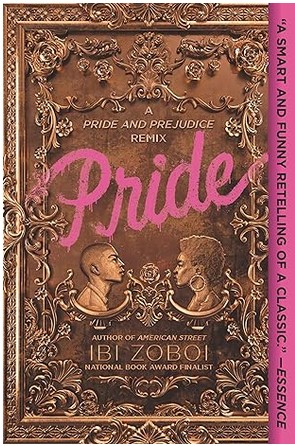
Pride: A Pride & Prejudice Remix
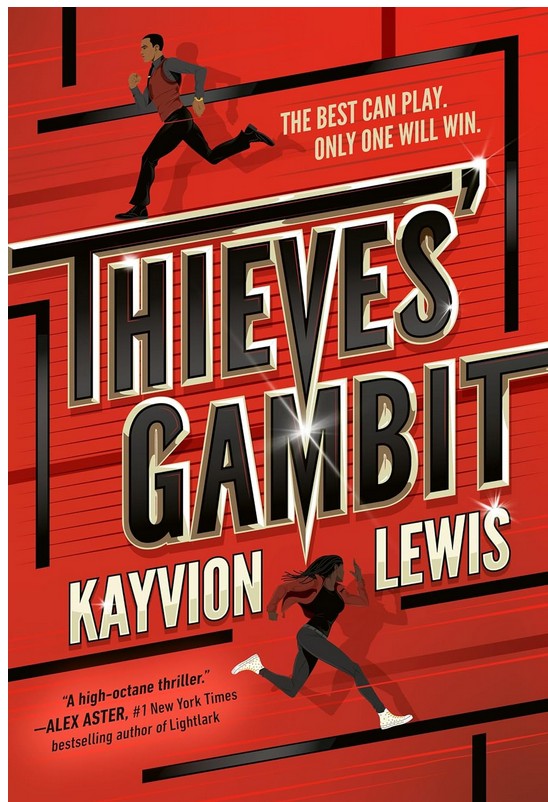
Thieves’ Gambit #1
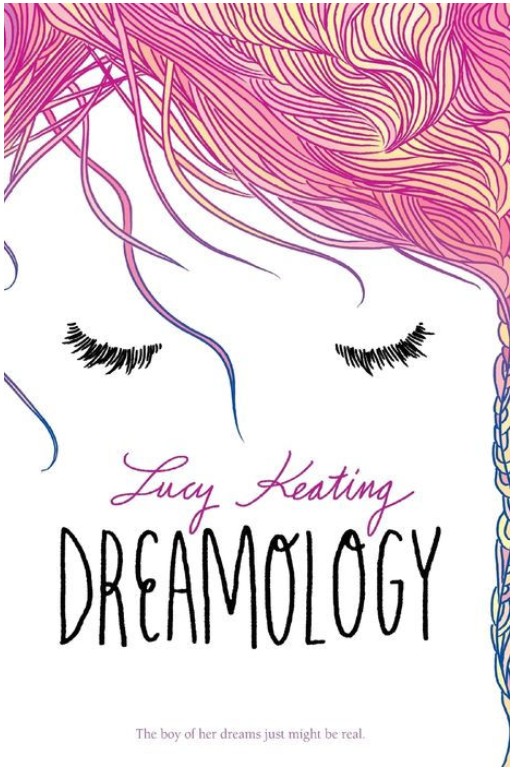
Dreamology
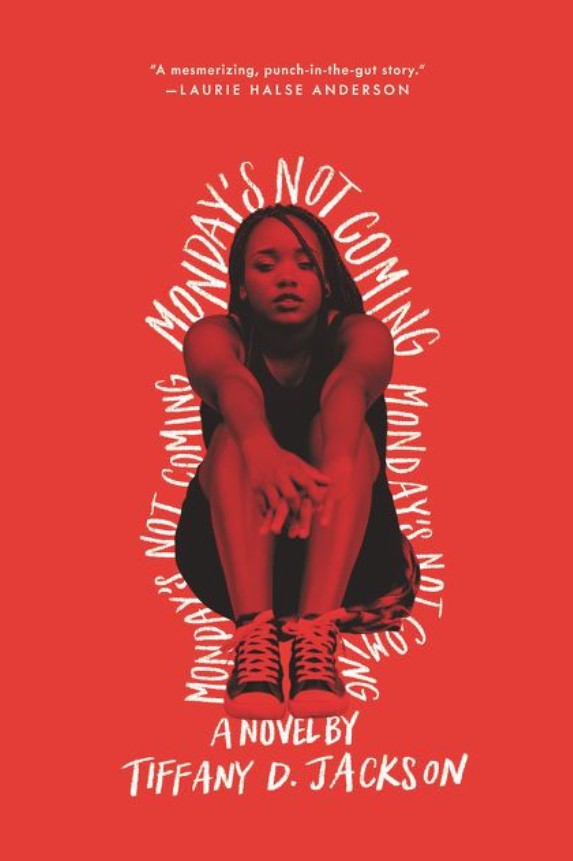
Monday’s Not Coming
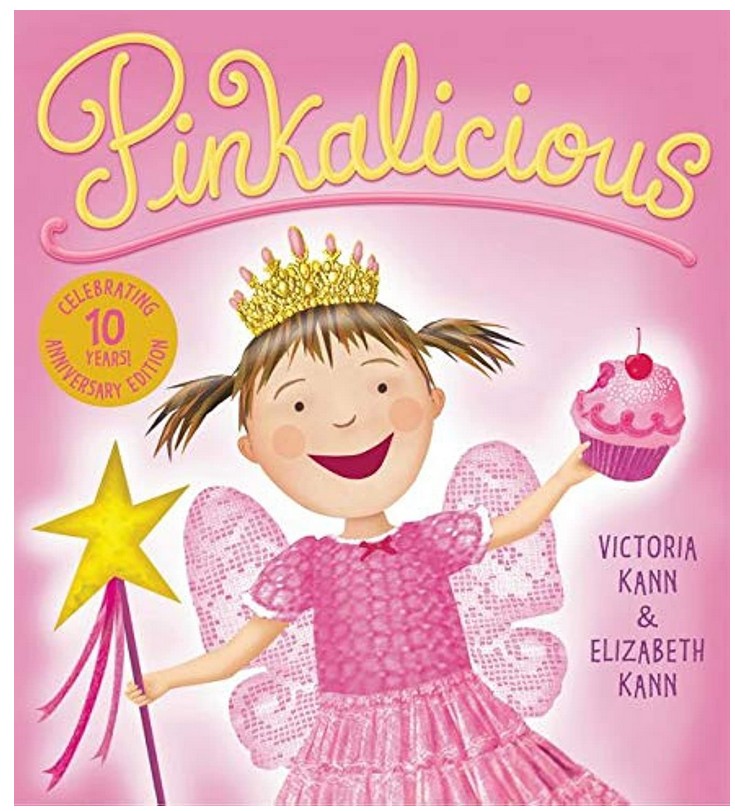
Pinkalicious

Driven

Goodbye Days

Blood of Troy

Will’s Race for Home

